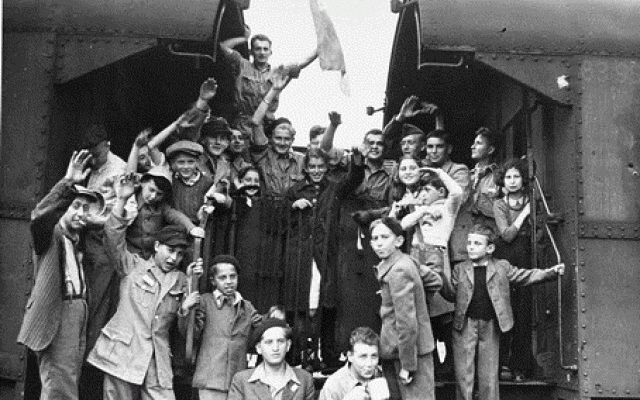
The International Study of Organized Persecution of Children (ISOPC) was founded in 1981 in response to the growing concerns among child survivors of the Holocaust that their experiences and their traumas had been neglected. Dr.Judith Kestenberg, psychiatrist, and Milton Kestenberg, an attorney involved in German reparations for victims of the Holocaust, founded ISOPC to focus on the unique experiences of child survivors.
As the name of the project indicates, its mission goes beyond the study of Holocaust child survivors to include study of child survivors of past, present, and future organized persecutions. (i.e. Bosnia, Rwanda, Darfur, Timor, Kosovo, Uganda, and other regions around the world.). However, the project has focused most of its energy on documenting the experiences, histories, and psychological processes undergone by child survivors of the Nazi Holocaust. Through the use of specially trained interviewers, over 1500 interviews have been conducted. Over 300 of these interviews are available on CDs at Hebrew University archives in Jerusalem Israel.
The interviews serve as the basis for historical and psychological research that allows us to examine how children of different ages and backgrounds responded to varied conditions during the period of persecution. What we learned has given us the ability to contribute to the development of better social and psychological treatments for other child survivors of major trauma.
Child survivors are a unique group
Until the early 1980s many child survivors of the Holocaust did not consider themselves survivors. They were often told and came to believe that children do not suffer long-term effects of trauma as do adults. They believed their fragmented memories could be set aside and they could get on with their lives. But as they aged, it became evident that they had not escaped the long-term effects of loss of family and home, exposure to severe and prolonged violence, of being hidden, and the loss of their childhoods.
When survivor parents and those who did not later survive told their children, “survive and tell the story,” they obligated their children to teach the lessons learned, so that the next generation of traumatized children would speak up and refuse to be silent. As one child survivor explained, “At first I wanted only to forget. Now, many years later, I want to understand myself better, to connect with other child survivors, and find ways to see how our experiences can help others.”
Lessons to be learned from childhood trauma
How do we use the vast amount of information we have gleaned from our interviews to develop a framework that helps us understand and counteract the effects of massive trauma on children? So far, while the lessons of the Holocaust have only been marginally integrated into the larger study of childhood trauma, they have the potential to make a significant contribution to the field. They have already been shared with psychologists and scholars working with child survivors of Cambodia, Rwanda, Bosnia and Darfur. ISOPC’s co-director, Dr. Eva Fogelman has worked directly with Native Americans and Armenians.
Researchers who worked with Cambodian child survivors in the United States noted that too much information on the impact of massive trauma on children is anecdotal or based on clinical cases. ISOPC makes real studies possible because of the wealth of material they have available to them from child survivors who were not seeking treatment.